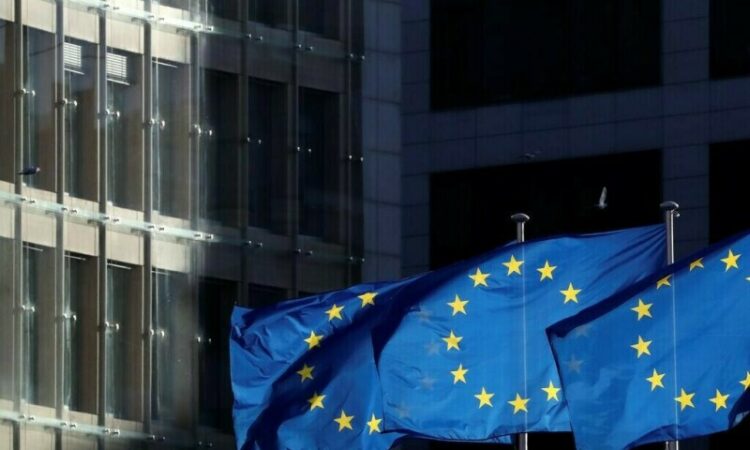
BRUSSELS: European Union leaders meet on Thursday to discuss the conflict between Israel and Hamas and also aim to show continued support for Ukraine in its fight against the Russian invasion.
The summit in Brussels will be the first in-person meeting of the 27 EU leaders since the deadly attack on Israel by the Palestinian group Hamas on October 7, which prompted Israel to bomb and blockade Hamas-run Gaza.
While all EU countries strongly condemned the Hamas attack, leaders found it difficult to stick to the same message afterwards, with some stressing Israel’s right to self-defense and others stressing concern for Palestinian civilians.
In the run-up to the summit, EU countries were debating whether to call a “humanitarian truce,” with some saying such a measure was necessary to get aid to Gaza, while others said it could limit Israel’s ability to defend itself.
Diplomats said the EU appeared to be rallying around a compromise call for a “truce” in the plural, where that refers to short breaks in the fighting for specific tasks such as the release of hostages or aid convoys, rather than a formal ceasefire.
European Union leaders, including French President Emmanuel Macron and German Chancellor Olaf Scholz, visited the Middle East to express their solidarity with Israel and strengthen diplomatic efforts to prevent the conflict from escalating into a regional war.
While the EU’s influence on the conflict is modest, officials fear that the escalation could have serious consequences for Europe, including escalating tensions between communities, the possibility of Islamist militant attacks and a large influx of refugees.
The European Union Parliament supports plans to secure raw material supplies
“Our meeting comes at a time of great instability and insecurity globally, which has recently been exacerbated by developments in the Middle East,” Charles Michel, president of the European Council of EU Leaders, said in an invitation to attend the summit.
He added: “These developments require our immediate attention, without distracting from our continued support for Ukraine.”
Ukrainian President Volodymyr Zelensky will deliver a speech at the summit via video link, and support for Kiev will take first place in the summit declaration.
The European Union and its member states have provided billions of euros in aid to Ukraine since the invasion of Russian forces in February last year.
But some officials and diplomats have expressed concerns that Ukraine may now find it difficult to get the same political attention and resources from the West, especially the United States, because of the new crisis in the Middle East.
The summit will not be able to sign off on multi-year plans worth 50 billion euros in financial aid and up to 20 billion euros in military aid for Ukraine, because they are part of a broader budget battle that officials hope to conclude by the end of the year.
At the summit, the leaders will have their first discussion on that budget package, which diplomats expect to be controversial. One EU diplomat said: “It is difficult to ask for more money for the EU budget when national budgets are under pressure.”
Diplomats say there is widespread support for more money for Ukraine, but other elements in the proposal from the European Commission – the bloc’s executive authority – are more controversial, as countries clash over priorities and sources of funding.
The Commission has asked for an additional 15 billion euros to deal with migration and more money to cover rising borrowing costs for the EU’s shared debt as interest rates rise.






